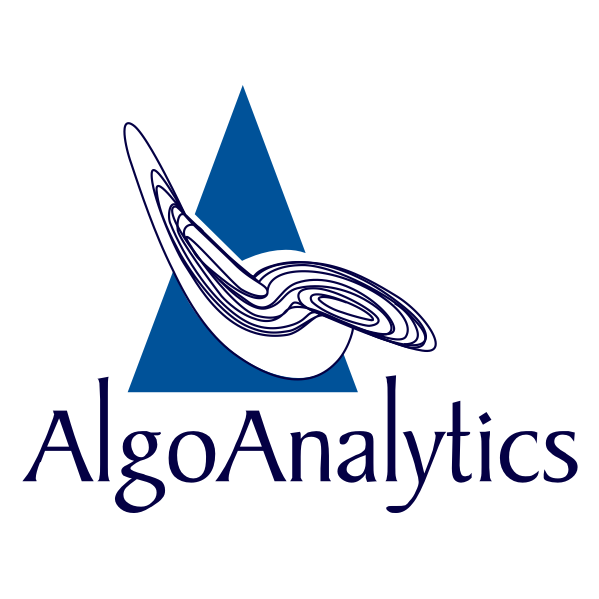By Neha Chitlangya
Introduction
The insurance broker industry thrives on trust, efficiency, and competitiveness. Brokers are key in building trust between insurance providers and clients, ensuring policies are clear and claims are managed smoothly. To do their job well, brokers collect a variety of data, both structured and unstructured. Clients depend on brokers for accurate and reliable policy information. Acting as intermediaries, brokers present policies transparently and understandably. They manage a large amount of information, such as policy documents, claim forms, and medical reports.
In order to improve their operational efficiency, offer better services, and maintain their competitiveness in a market that is changing quickly, insurance brokers—who have long been recognized for their proficiency in risk assessment and coverage recommendations—are now utilizing AI developments.
Drawbacks of traditional brokerage operations:
The cost of offline operations was high.
- Purchasing insurance was frequently a laborious and time-consuming process.
- Customer communications were frequently lacking and employed complex jargon.
- The complicated claims processing system made for a drawn-out and annoying encounter.
- The old-fashioned ways required a lot of paperwork—long forms and multiple papers to be submitted.
AI’s Impact on Transforming the Insurance Industry
- Engagement:
Artificial intelligence (AI)-driven chatbots and virtual assistants are transforming the way insurance brokers communicate with their customers. Brokers can concentrate on more difficult duties with the help of these technologies, which answer common inquiries, offer quick estimates, and help with claims processing.
- Evaluation of Risk:
Insurance machine learning systems evaluate vast datasets to determine client risks. They take into account things like age, health, and way of life, providing brokers with insightful information to support customers in making wise selections.
- Writing underneath:
Underwriters and brokers collaborate to assess and price policies. This procedure can be automated with the use of machine learning techniques, which will decrease human error and increase the speed and precision of policy issuance.
- Predictive Analytics:
Insurance brokers can utilize the insights from machine learning to advise clients on how to adjust their coverage to changing circumstances and hazards. Insurance machine learning uses predictive analytics to foresee market trends and upcoming risks.
Artificial Intelligence in Claims Automation
AI extracts crucial information from claims forms and supporting documents, improving data entry accuracy and reducing errors. Ideally, the exact source documents are cited. AI also captures data from unstructured sources to help experts find similar claims. During claims submission, AI-powered channels like chatbots use natural language processing (NLP) to understand and quickly resolve policyholder requests.
Claims Routing –
AI promptly categorizes and routes claims to the appropriate handler or automated system, enhancing response times and customer experience. AI technology revolutionizes vehicle damage detection for insurance brokers by providing efficient, accurate, and automated assessments. It quickly analyzes images to assess damage, estimates repair costs using historical data, and detects potential fraud by cross-referencing vehicle history. This streamlines the claims process, ensuring faster approvals and settlements while maintaining consistency and accuracy. The result is improved customer satisfaction through quicker claim resolutions and enhanced operational efficiency for insurance brokers. Insurers must integrate AI-driven automation and analytics to align with their operational values and commitment to customers.
Check our demo app for Vehicle damage detection – https://apps.onestop.ai/car-damage-detection/dashboard
Benefits of AI in Insurance
- Fraud Prevention and Identification
AI-powered solutions are excellent at spotting fraud and averting mistakes by looking for trends and abnormalities in previous data. This proactive strategy, which is always changing to thwart new fraudulent strategies, shields insurers from monetary losses and upholds the integrity of the insurance ecosystem.
- Using Predictive Analytics to Assess Risk
The data analytics powers of AI enable insurers to make well-informed risk assessment judgments. Artificial intelligence (AI) forecasts possible risks by examining past data, which helps with insurance and pricing strategies. This aids insurers in providing customized policies, enhancing risk management, and spotting patterns.
- Personalized Communications with Customers
Throughout the claims process, AI enables individualized interactions that improve engagement and satisfaction. With customized solutions and recommendations, AI-driven chatbots improve client connections by decreasing the workload for human agents and providing real-time updates and assistance.
- Operating Cost reduction
Automation powered by AI reduces operating costs through process simplification, a decrease in manual intervention, and resource allocation optimization. By spotting cost-saving possibilities like fraud identification and claims optimization, predictive analytics raises profitability and productivity.
- Adherence to Regulations
AI streamlines regulatory compliance for insurers by automating operations like reporting and monitoring. Artificial intelligence (AI) solutions can adapt in real time changes in regulations, guaranteeing continued governance and compliance, offering insights into regulatory patterns, and upholding stakeholder and regulator trust.
Recent examples of AI applications from the industry
- Allstate Business Insurance Expert, an AI-powered assistant, was developed by an American insurance business and Earley Information Science (EIS). Prior to ABIe, the business had trouble obtaining the data needed to communicate with prospective customers, which resulted in lengthy wait times and lost business possibilities. ABIe offers comprehensive, easy-to-follow guidelines for quoting and issuing ABI products in natural language. According to EIS, ABIe efficiently responds to over 25,000 queries a month.
- Liberty Mutual is a US-based, internationally diversified insurance with its headquarters located in Boston. The business has stated that it plans to create car apps with AI to improve driver safety. These apps will analyze photos of auto accidents using artificial intelligence (AI) and provide cost estimates for repairs.
AI Evolution in Insurance
AI in insurance brokerage has a bright future ahead of it and will continue to develop. The following are major trends shaping the industry.:
- AI will develop in big data analysis to better identify new dangers and forecast market trends, enabling brokers to make data-driven decisions.
- Artificial intelligence (AI)-driven underwriting and policy recommendation systems will provide more individualized insurance options, guaranteeing that coverage perfectly matches individual requirements.
- Insurance will be better able to identify and stop fraudulent claims thanks to machine learning, which will lessen the financial losses brought on by fraudulent activity.
- It is anticipated that insurance regulators would work with industry participants to create moral and legal standards for the use of AI, guaranteeing equity and openness.
- In order to better serve clients, artificial intelligence (AI) will enable insurance brokers to access underserved regions by removing obstacles related to geography and other factors.
AI has changed the insurance industry by automating claims processing and greatly increasing productivity. It promises continuous improvements in service quality by lowering processing costs by 50–65%, claims handling times by 50–90%, and improving overall customer experience.
Conclusion
Brokers are at the forefront of this revolution as artificial intelligence (AI) changes the insurance sector. Brokers may improve customer service, streamline operations, and stay competitive in a sector that is changing quickly by implementing AI. They must, however, overcome obstacles like data privacy, ethics, compliance, and implementation costs at first. Customers may expect more individualized plans and higher-quality service as the insurance industry realizes the promise of artificial intelligence.
As artificial intelligence (AI) continues to transform the insurance market, brokers that use advanced tools have advantage.
We at AlgoAnalytics are leading this transformation in insurance, leveraging our expertise to deploy advanced AI technologies. In a market that is constantly changing, insurers may preserve their competitiveness by utilizing the power to ensure operational excellence and sustainable growth.
References –
https://www.duckcreek.com/blog/how-ai-is-impacting-the-insurance-industry/

